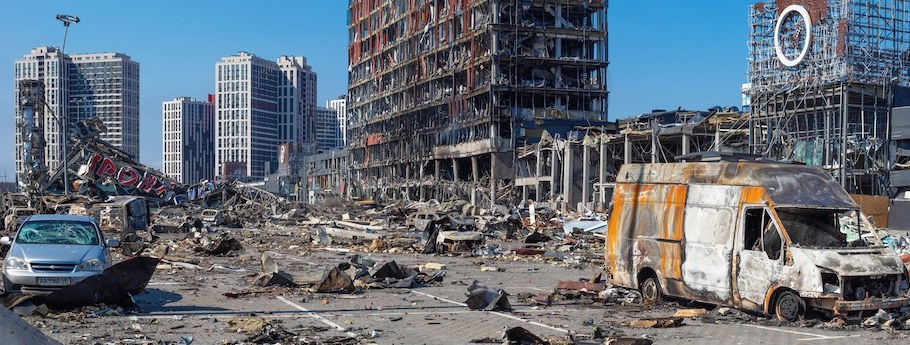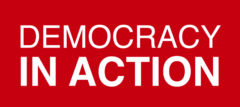
As of today, Ukraine is embroiled in a brutal struggle to remain an independent state, making it difficult to look beyond unfolding military events. Few, then, would be confident in predicting the circumstances amid which the country will eventually emerge from war and embark on its long road to recovery. The question of which sectors or areas of industry Ukraine should pursue when the time comes to relaunch its economy remains perilously unclear.
Some industrial facilities have been so utterly devastated that it is hardly worth restoring them to their previous, post-Soviet levels. Thus, rather than talking of ‘restoration’, it more pertinent to think in terms of ‘reformatting’ or ‘renovation’. Driven by the current high tide of patriotism, the Ukrainian economy is potentially in a strong position to embrace new industries, such as digital technologies, electronics and the defence industry.
Doing so will require considerable human resources. Given that a significant proportion of the population has already fled across the country’s borders, it is important to consider how refugees might be enabled to return, rather than relying on families being reunited abroad. Ukraine is already facing reduced in-flows of cash from those working abroad, as their earnings now often remain within their country of residence. This poses a major problem, as in recent years cash flows from foreign-based Ukrainians have exceeded direct foreign investments to Ukraine. Cross-border payment services also need improving to make payments from diaspora easier.
In order to pave the way for Ukrainians who now reside overseas to return, as well as to prevent the departure of those considering a new life abroad, the country must provide answers to the following questions: Where will people live? What will they eat? How will they earn a living? And where will their children by educated?
Where will people live?
Should the country remain in ruins, littered by ghost districts and partially constructed residential complexes, it will be difficult for many to rebuild their future here. In particular, Ukraine faces losing young, mobile people who might otherwise have played an active part in restoring the country’s economy. It is therefore crucial that principled decisions are made, and negotiations opened, to find sources of funding for new residential and infrastructure facilities, as well as temporary housing.
Many of those who have seen their homes or premises destroyed have been told they may receive compensation but without a specific date on the horizon. Such uncertainty about the future is counter-productive when it comes to reassuring citizens. Thus, plans need to be put in place now to ensure that people are confident inflation will not eat away at the payments they are to receive as part of any future rebuilding programme.
In terms of the short-term accommodation needed to partially solve the issue of destroyed housing, it is only in Lviv that efforts appear to be underway to build temporary complexes. Most regions – and in particular, Kyiv – have yet to demonstrate any plans on the issue. A nation-wide solution would be to establish a temporary reconstruction agency, along the lines of what Tymofiy Mylovanov and Gerard Roland recommend in a recent publication about post-war reconstruction and governance reforms.
When it comes to new houses or apartment blocks, various obstacles – from rampant inflation to labour shortages to interruptions in electricity and water supplies – have prevented developers from completing construction. In most cases, it is citizens’ money that is at stake. The fulfilment of investment obligations therefore needs to be guaranteed, if necessary by providing loans to ensure construction can continue.
Here, it is crucial to understand that if just one major developer goes bankrupt, it could trigger a domino effect comparable to what occurred in the US during the Great Depression. Such a catastrophe would in turn provoke a mental return to the 1990s, a time when the post-Soviet republics underwent a crushing period of economic transformation and impoverishment. Faced with this, many families will simply lose hope and seek to emigrate.
What will people eat?
Food security in Ukraine is more fragile than ever. For example, as of May 2022, the total financial losses arising from the destruction of egg production caused bv Russian aggression amounted to around 38 million euros. Thus far the situation has been mitigated by the state regulation of prices. Once the war ends and market pricing returns, significant price shocks in the food market can be expected.
On top of this, Ukraine’s economy will need to begin integrating into the EU, with restrictions removed on the movement of many products. As a result, prices in Ukraine are likely to rise significantly, posing significant challenges for the government and society more broadly.
It is also worth noting that Ukraine’s grain production is expected to rise and expand significantly in a post-war future, after the heavy losses sustained because of the war. This means the government faces additional responsibilities when it comes to ensuring grain corridor logistics, such as transportation, storage and distribution. Fulfilling these responsibilities will be critical to maintaining a stable food supply and managing prices.
How will people earn a living?
In 2022, there was a reported 40% rise in business closures, although signs of recovery are starting to show: in the second quarter of 2023 foreign direct investment increased by USD 629 million. Reactivating closed businesses after the war with a new and improved model of operation will be essential. The government should provide incentives and support towards this end, while promoting the adoption of more innovative and sustainable practices.
At the same time, comprehensive tax reforms based on new administrative and penal principles are needed. This will ensure fair and transparent taxation, reduce tax evasion and corruption, and foster a more conducive environment for business growth and private entrepreneurship.
Where will children be educated?
The public system of kindergartens and schools is not at present able to offer a safe space for educating children. Many private institutions, by contrast, have equipped their buildings with bomb shelters and developed plans of action in case of attack.
It has become clear over the course of the war that a significant number of services – including teaching – can be provided online, whether fully digital or in a hybrid format. Accordingly, the digitisation of all relevant state services, particularly in the educational realm, should be pursued as a priority.
Transforming Ukraine’s economy after the war
A range of measures are required to stimulate a long-term transformation of Ukraine’s economy capable of sustaining the return of the country’s citizens after the war. This includes legislative initiatives aimed at protecting investors, such as the creation of an investors’ bank and, possibly, a declaration of investors’ rights.
A strategy for ensuring Ukraine’s energy independence and efficiency is urgently needed. As well as introducing technology that will allow energy to be obtained from renewable sources, the strategy should address how to increase the efficiency of energy transmission, storage and use. This includes promoting the transition to electric vehicles and a complete ban on the sale of petrol and diesel cars cars by 2035, as per EU recommendations.
Ukraine’s integration into the EU economy will require a clear and comprehensive strategy on improving the business climate, promoting competition, enhancing the rule of law, protecting property rights, and implementing reforms to meet EU standards. Alongside this, the government should focus on building strong economic partnerships with neighbouring countries and diversifying Ukraine’s export markets.
Last but not least, Ukraine must invest in education and innovation in order to increase the competitiveness of its workforce and attract foreign investment.
At present, Ukraine faces an uncertain future, with predictions of when and how the war will end amounting to little more than speculation. Nevertheless, if the country is to hold onto its greatest resource – its people – both short-term measures and long-term plans need to be put in place to ensure the country emerges from conflict with a clear vision for its economic future.
Ganna Kharlamova is Professor at the Taras Shevchenko National University of Kyiv, Ukraine, and Lucian Blaga University of Sibiu, Romania. She is an expert of economic modelling and forecasting, and the author of the 2018 book Ukraine 2030: The Doctrine of Sustainable Development.
Andriy Stavytskyy is Professor at the Taras Shevchenko National University of Kyiv, Ukraine, where he is the Director fo the Economic Cybernetics Programme. He is the managing editor of the Lithuanian-based scientific journal Ekonomika.
The views expressed in this article are those of the authors and do not necessarily reflect Democracy in Action’s editorial stance, or the position of any institution or association.
